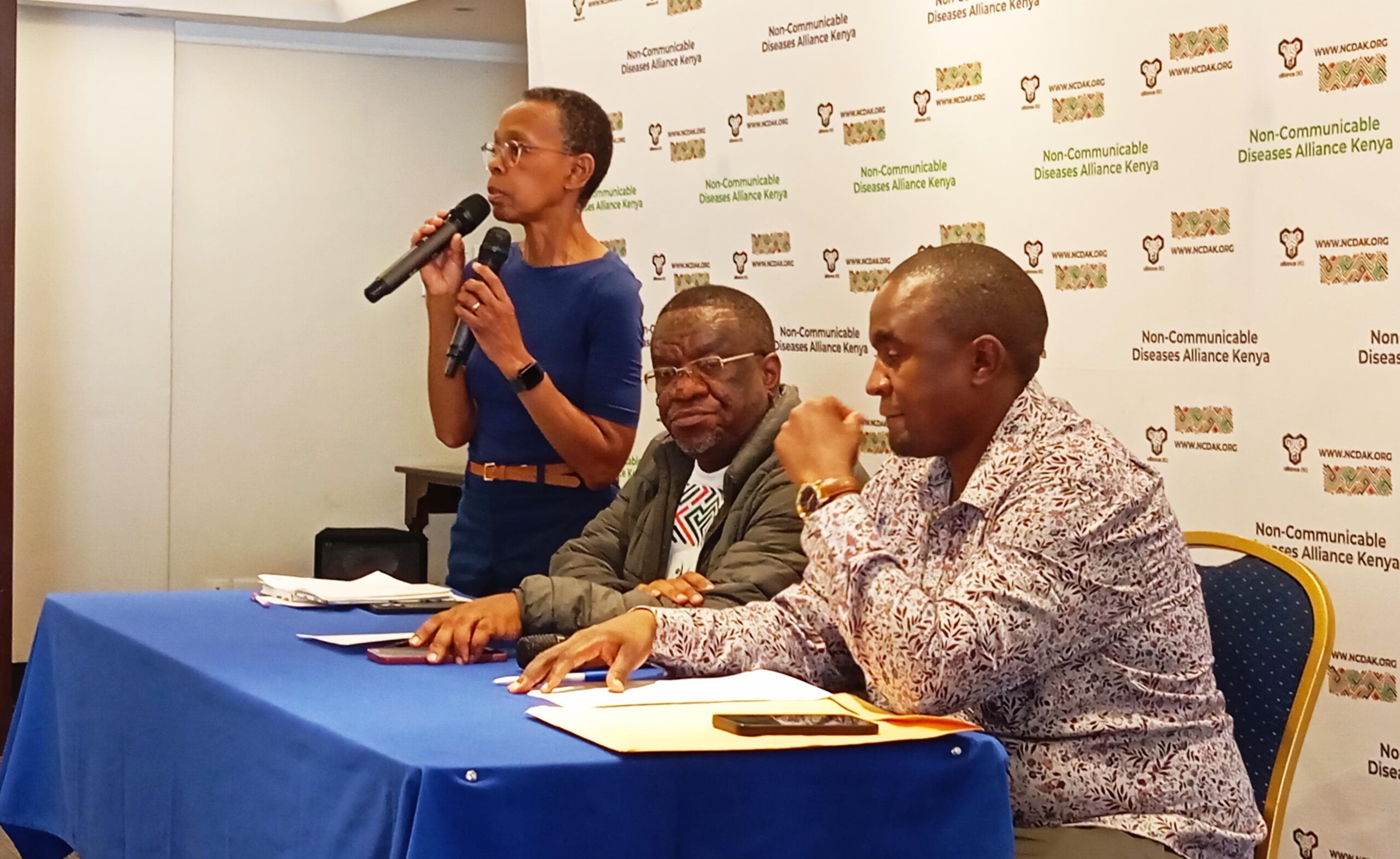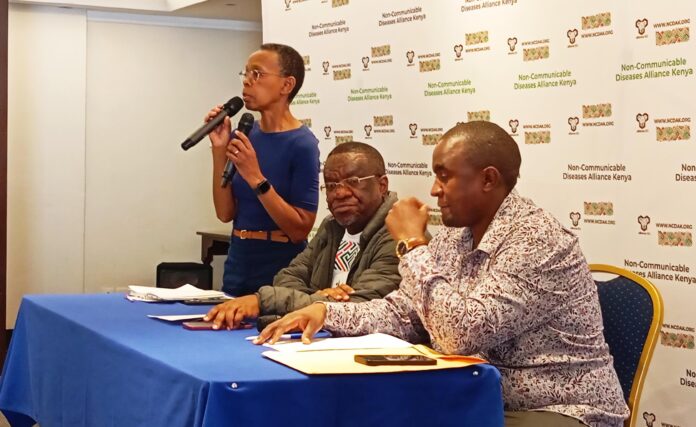By Melisa Mong’ina
The Non-Communicable Diseases Alliance of Kenya (NCDAK) recently convened in Nairobi and urged the government and the Ministry of Health to resolve challenges facing patients who access care using the social Health Insurance Fund (SHIF) that is managed by the Social Health Authority (SHA). They noted with concern that some patients faced challenges in accessing care with some detained in hospitals after recovery due to unpaid medical bills.
Speaking during the press conference, John Gikonyo, Vice Chairperson of the NCDAK, highlighted that access delays and inefficiencies in public hospitals have left patients with non-communicable diseases (NCDs) waiting for extended periods to receive essential services. He explained that many facilities reported technical failures and system breakdowns, causing additional distress for patients.
“Public hospitals like Kenyatta National Hospital and Kenyatta University Hospital reported frequent delays, leaving patients waiting for hours to access services such as diagnostic imaging and specialized procedures. Technical failures and system outages were common issues,” Gikonyo said.

He further pointed out that private facilities, such as Nairobi Hospital and Rural Family-Specialty Hospital, have restricted SHA coverage to specific groups of civil servants, leaving many NCD patients without access to necessary treatments. High-risk patients, including those with cancer and transplant recipients, are particularly affected, leading to increased reliance on out-of-pocket payments for treatments previously covered under the National Hospital Insurance Fund (NHIF).
“Private hospitals like Nairobi Hospital and Rural Family-Specialty Hospital limit SHA coverage to certain civil servants, leaving other NCD patients ineligible. Cancer patients, transplant recipients, and other high-risk groups are especially impacted, forcing many to pay out-of-pocket,” Gikonyo added.
Gikonyo also noted that public hospitals such as Mama Lucy Kibaki and Mbagathi are unable to perform advanced procedures like cardiac surgeries for SHA patients, limiting life-saving interventions. Additionally, SHA has suspended coverage for overseas treatment, leaving many patients without access to specialized care or facing detention due to unpaid bills previously covered by NHIF.
“Public hospitals like Mama Lucy Kibaki and Mbagathi lack the capacity to perform advanced procedures, such as cardiac surgeries, for SHA patients, severely restricting life-saving options. SHA has also suspended overseas treatment coverage, leaving patients with no options for specialized care not available in Kenya,” he said.
He called for increased transparency and a focus on addressing systematic challenges to rebuild trust in the SHA system. He urged patients to seek care at facilities offering SHA benefits rather than remaining at facilities that cannot meet their needs.
“We need clarity on these issues so expectations are met, and confidence in SHA is restored. I encourage our members not to stay in one facility if they aren’t receiving necessary services; instead, find facilities that provide SHA benefits,” Gikonyo advised.
Evans Majau, Chair of the Caucus of Patient-Led Organizations for NCDs, emphasized the need for transparency, access to specialized care, and patient involvement to fulfill the promise of universal health coverage. He called on the Ministry of Health and SHA leadership to listen to patient voices and address the issues raised.
“The SHA rollout must prioritize transparency, access to specialized care, and patient inclusion to achieve universal health coverage, as promised by the President. We urge the Ministry of Health and SHA leadership to engage with patient voices and take swift action,” Majau said.
Dr. Catherine Karekezi, Executive Director of Non Communicable Diseases Alliance Kenya,added that NCDs account for 41% of deaths in Kenya and contribute significantly to hospital admissions. She emphasized that NCDs are lifelong conditions that require consistent treatment and care.
“According to WHO, NCDs account for 41% of deaths in Kenya, with more than half of all hospital admissions due to these diseases. These are lifelong conditions that require uninterrupted treatment and care,” Dr. Karekezi stated.














